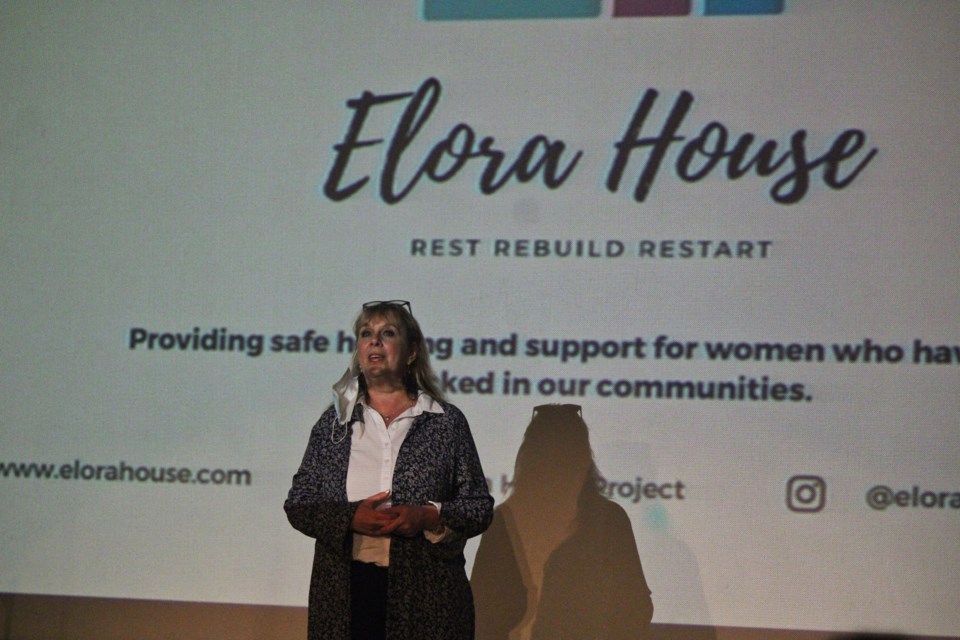ELORA – Wellington County residents can’t turn a blind eye and push off human trafficking as another community's issue because it happens here too.
That’s the message organizers of a Tuesday evening panel discussion on local human trafficking at Elora’s Gorge Cinema wanted to get across to the audience.
Representatives from the Wellington OPP, Victim Services Wellington-Guelph (VSWG), Crime Stoppers Guelph-Wellington (CSGW) and community volunteers representing human trafficking awareness and the Elora House, all spoke mainly about sex trafficking at the invite-only event
Elizabeth Kent, VSWG executive director, said there isn’t a lot of stats because of the nature of human trafficking and because tracking it is so new.
However, she said they have so far supported 33 victims of human trafficking so far in 2021, up from 22 in all of 2020.
“We had a case locally, there was a family that their young daughter was being pimped out by the family,” Kent told the audience.
The audience was taken aback by this, but Barbara Evoy, local child and family advocate, said that’s the point. It’s difficult to hear but it’s important for the audience to want to take action.
“We used to think that trafficking meant bringing young girls in from faraway counties and sending our girls back, but it’s happening right here in our homes, in our community,” Evoy said.
Elora House is meant as a way to fill a previous gap in the community where young women who have escaped or left human trafficking had no local supportive housing.
Since opening around a year and a half ago in an undisclosed location, Evoy said Elora House has had 15 residents with six from Wellington County.
“The very first young lady to lay her head on a clean and safe pillow at Elora House was from Fergus,” Evoy said. “Yes, it’s happening right here at home.”
Megan Baron, case management coordinator for Elora House, added their residents' ages have ranged from 15 to 52.
The presenters stressed victims of human trafficking range in all ages, race, gender or sexual identity but most begin being groomed as minors. Most of this appears to be taking place online, often through social media to start pushing boundaries and creating bonds with intended victims.
CSGW coordinator Sarah Bowers-Peter noted at a student presentation at a local school, she asked students to raise their hand if they had ever received an inappropriate message, picture or were asked for one from someone on their friend’s list.
Nearly every hand rose.
“The kids already know what’s happening, they’re just not making the connection,” Bowers-Peter said.
This is why she said they believe education is key for parents and children, especially when it comes to online safety.
Education sessions on human trafficking for both parents and children are available to be booked for school, church, sports and community centres through CSGW partnered with either Guelph Police Service or OPP.
Presentations can be booked by contacting [email protected]
